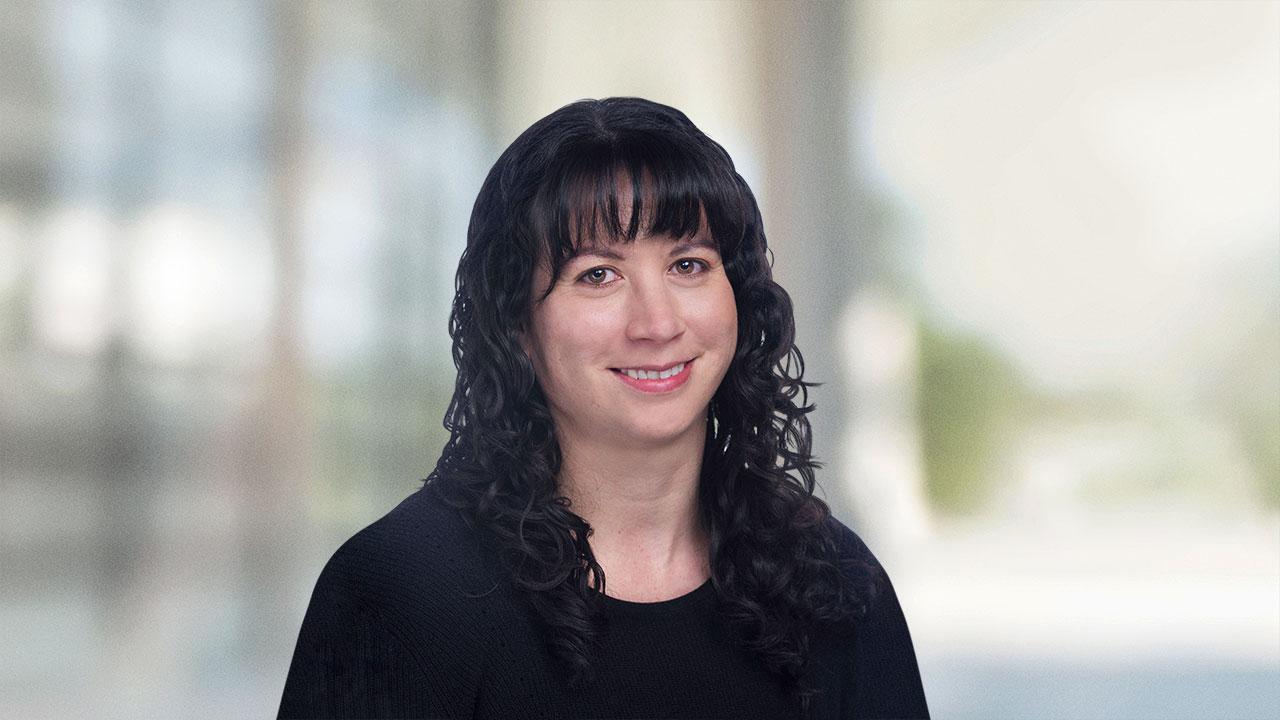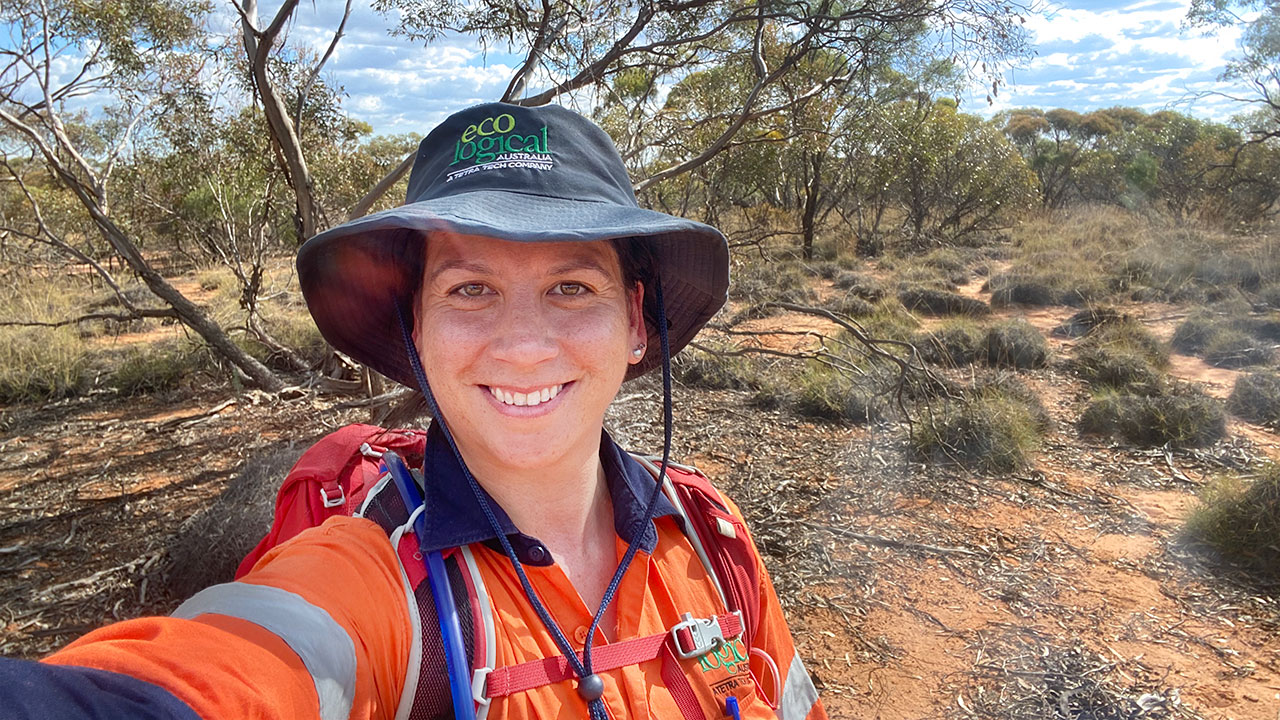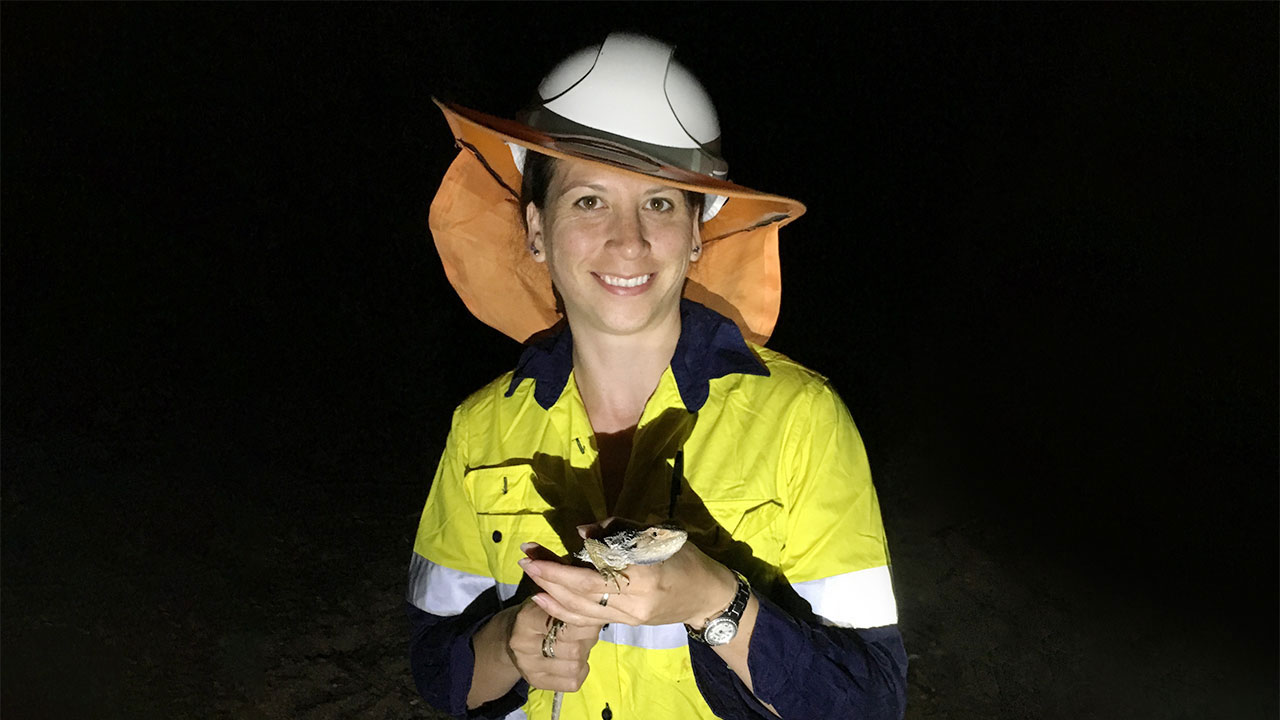
Michelle has been instrumental in the successful delivery of a number of large specialist ecological programs in some of the most remote regions of Australia, overcoming daily challenges to deliver outstanding results.
Brigid Moriarity, Unit President
Michelle Frolich is Tetra Tech’s May 2023 PM of the Month. As a senior ecologist and biodiversity offset specialist, she manages a portfolio of successful biological assessment projects. She has over 12 years of experience in undertaking biodiversity assessments, ecological field surveys, and ecological impact assessments.
Michelle is a New South Wales (NSW) Biodiversity Assessment Method (BAM) Accredited Assessor. She leverages her detailed technical knowledge of state government methodologies and frameworks to guide landowners and developers in establishing biodiversity offset sites and assessing ecological impact.
“Michelle’s dedication to technical excellence is matched by her focus on client satisfaction and engagement, team cohesion and development, and strong financial performance,” said Brigid Moriarity, Unit President. “Michelle has been instrumental in the successful delivery of a number of large specialist ecological programs in some of the most remote regions of Australia, overcoming daily challenges to deliver outstanding results.”
She has extensive experience in project management and undertaking ecological assessments, as well as planning and supporting field surveys, including vegetation mapping and threatened flora and fauna surveys to deliver positive outcomes for both biodiversity and her clients.
Michelle earned a Bachelor of Science in Marine Science from the University of Sydney. She is based in our Sutherland, NSW, Australia office.
“I don’t carry out my job thinking about receiving awards like this, let alone be nominated for it with so many great project managers in the team, so it’s a nice surprise and an honor to be recognized for the work that I do,” Michellle said.
We talked with Michelle about her work delivering complex biodiversity and ecological assessments to clients in New South Wales, Australia.
What impact do your projects have on the environment and communities you work in?
Both the private and public sectors are increasingly looking for ways to offset impacts on species and ecosystems from urban development, infrastructure, and mining projects. My team undertakes very technical biodiversity and ecological assessments using BAM. I support clients with quantifying and assessing impacts to biodiversity values for a development project and identifying where gains in biodiversity values can be made on an offset site.
Where it aligns with an offset site, Indigenous cultural heritage items and places may also be conserved in registered offset sites. We work closely with heritage partners to achieve good outcomes that both manage and protect biodiversity as well as cultural heritage.
We achieve measurable biodiversity outcomes by working with local partners to offset and mitigate unavoidable environmental impacts, reduce threats, and improve local livelihoods.
What is your approach to managing a successful project team?
Maintaining consistent communication with my team, providing clear instructions, and establishing effective communication channels is essential to a successful project team, particularly when working in remote locations. I have numerous staff assisting and carrying out targeted biodiversity surveys at sites with limited reception, but we strive to maintain communication via mobile satellite devices.
As a project manager, I recognize the importance of continuous improvement to meet clients’ evolving needs. I’m always open to discussions on the approach and execution of fieldwork and in providing input on project footprint designs because we don’t just want to meet client demands, we want to exceed them.
More broadly, as an ecology team leader in my region, I also support my staff in their daily activities and encourage them to continue developing their technical skills. In my time at Tetra Tech, it has been really rewarding to work with a large team of like-minded individuals and experts in the ecology field.
How do you maintain client satisfaction across a variety of complex projects?
I find it really satisfying to work closely with my clients and find solutions to their complex and evolving project challenges. In addition to technical knowledge, the nature of the work requires a good understanding of the regulatory environment to help clients meet local and national government regulatory requirements.
Maintaining client satisfaction also means communicating and resolving issues in a timely manner. For example, I actively communicated with the client on adaptations needed to complete the fieldwork when one of our survey programs was disrupted by major floods in western NSW.

